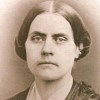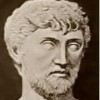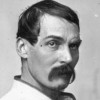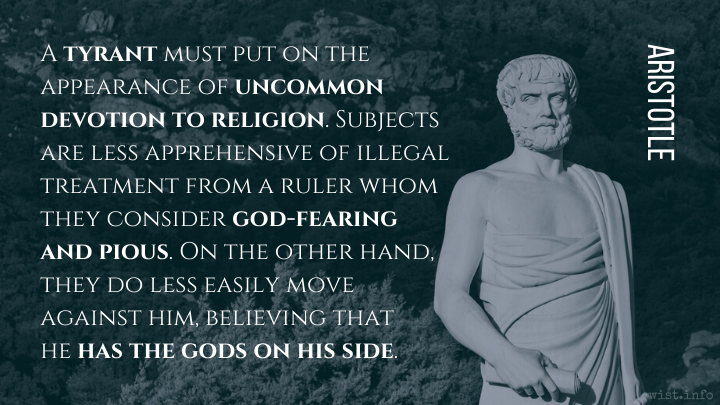Quotations about:
religion
Note not all quotations have been tagged, so Search may find additional quotes on this topic.
I do not say, and I do not believe, that Christians are as bad as their creeds. In spite of church and dogma, there have been millions and millions of men and women true to the loftiest and most generous promptings of the human heart. They have been true to their convictions, and, with a self-denial and fortitude excelled by none, have labored and suffered for the salvation of men. Imbued with the spirit of self-sacrifice, believing that by personal effort they could rescue at least a few souls from the infinite shadow of hell, they have cheerfully endured every hardship and scorned every danger. And yet, notwithstanding all this, they believed that honest error was a crime. They knew that the Bible so declared, and they believed that all unbelievers would be eternally lost. They believed that religion was of God, and all heresy of the devil. They killed heretics in defence of their own souls and the souls of their children. They killed them because, according to their idea, they were the enemies of God, and because the Bible teaches that the blood of the unbeliever is a most acceptable sacrifice to heaven.
Robert Green Ingersoll (1833-1899) American lawyer, agnostic, orator
“Heretics and Heresies” (1874)
(Source)
Formerly there were those who said: You believe things that are incomprehensible, inconsistent, impossible because we have commanded you to believe them; go then and do what is unjust because we command it. Such people show admirable reasoning. Truly, whoever is able to make you absurd is able to make you unjust. If the God-given understanding of your mind does not resist a demand to believe what is impossible, then you will not resist a demand to do wrong to that God-given sense of justice in your heart. As soon as one faculty of your soul has been dominated, other faculties will follow as well. And from this derives all those crimes of religion which have overrun the world.
[Il y a eu des gens qui ont dit autrefois: Vous croyez des choses incompréhensibles, contradictoires, impossibles, parce que nous vous l’avons ordonné; faites donc des choses injustes parce que nous vous l’ordonnons. Ces gens-là raisonnaient à merveille. Certainement qui est en droit de vous rendre absurde est en droit de vous rendre injuste. Si vous n’opposez point aux ordres de croire l’impossible l’intelligence que Dieu a mise dans votre esprit, vous ne devez point opposer aux ordres de malfaire la justice que Dieu a mise dans votre coeur. Une faculté de votre âme étant une fois tyrannisée, toutes les autres facultés doivent l’être également. Et c’est là ce qui a produit tous les crimes religieux dont la terre a été inondée.]
Voltaire (1694-1778) French writer [pseud. of Francois-Marie Arouet]
Questions sur les miracles (1765)
(Source)
Commonly translated: "Those who can make you believe absurdities can make you commit atrocities."
The world is so exquisite with so much love and moral depth, that there is no reason to deceive ourselves with pretty stories for which there’s little good evidence. Far better it seems to me, in our vulnerability, is to look death in the eye and to be grateful every day for the brief but magnificent opportunity that life provides.
You can take away a man’s gods, but only to give him others in return.
Why should my freedom be governed by somebody else’s conscience?
The Bible (The New Testament) (AD 1st - 2nd C) Christian sacred scripture
1 Corinthians 10:29 [NJB (1985)]
(Source)
Paul on how it's okay to eat food that others think is religiously wrong to eat (but how you shouldn't be a dick about it, either).
Alternate translations:
For why is my liberty judged of another man's conscience?
[KJV (1611)]
Why should my freedom depend on somebody else’s conscience?
[JB (1966)]
“Well, then,” someone asks, “why should my freedom to act be limited by another person's conscience?"
[GNT (1976)]
Why should my freedom be judged by someone else’s conscience?
[CEB (2011)]
For why should my liberty be subject to the judgment of someone else’s conscience?
[NRSV (2021 ed.)]
It is bad religion to deify doctrines and creeds. While indispensable to religious life, doctrines and creeds are only so as signposts. Love alone is the hitching post. Doctrines, let’s not forget, supported slavery and apartheid; some still support keeping women in their places and gays and lesbians in limbo. Moreover, doctrines can divide while compassion can only unite. In other words, religious folk, all our lives, have both to recover tradition and to recover from it.
William Sloane Coffin, Jr. (1924-2006) American minister, social activist
Credo, “Faith, Hope, Love” (2004)
(Source)
Even if we think religion insoluble, we cannot think it irrelevant. Even if we ourselves have no view of the ultimate verities, we must feel that wherever such a view exists in a man it must be more important than anything else in him.
Robert Green Ingersoll (1833-1899) American lawyer, agnostic, orator
“Heretics and Heresies” (1874)
(Source)
Men and women have been burned for thinking there is but one God; that there was none; that the Holy Ghost is younger than God; that God was somewhat older than his son; for insisting that good works will save a man without faith; that faith will do without good works; for declaring that a sweet babe will not be burned eternally, because its parents failed to have its head wet by a priest; for speaking of God as though he had a nose; for denying that Christ was his own father; for contending that three persons, rightly added together, make more than one; for believing in purgatory; for denying the reality of hell; for pretending that priests can forgive sins; for preaching that God is an essence; for denying that witches rode through the air on sticks; for doubting the total depravity of the human heart; for laughing at irresistible grace, predestination and particular redemption; for denying that good bread could be made of the body of a dead man; for pretending that the pope was not managing this world for God, and in the place of God; for disputing the efficacy of a vicarious atonement; for thinking the Virgin Mary was born like other people; for thinking that a man’s rib was hardly sufficient to make a good-sized woman; for denying that God used his finger for a pen; for asserting that prayers are not answered, that diseases are not sent to punish unbelief; for denying the authority of the Bible; for having a Bible in their possession; for attending mass, and for refusing to attend; for wearing a surplice; for carrying a cross, and for refusing; for being a Catholic, and for being a Protestant; for being an Episcopalian, a Presbyterian, a Baptist, and for being a Quaker.
Robert Green Ingersoll (1833-1899) American lawyer, agnostic, orator
“Heretics and Heresies” (1874)
(Source)
Finally, I believe in an America where religious intolerance will someday end — where all men and all churches are treated as equal — where every man has the same right to attend or not attend the church of his choice — where there is no Catholic vote, no anti-Catholic vote, no bloc voting of any kind — and where Catholics, Protestants and Jews, at both the lay and pastoral level, will refrain from those attitudes of disdain and division which have so often marred their works in the past, and promote instead the American ideal of brotherhood.
John F. Kennedy (1917-1963) US President (1961-63)
Speech, Greater Houston Ministerial Association (12 Sep 1960)
(Source)
I have ever thought religion a concern purely between our god and our consciences, for which we were accountable to him, and not to the priests. I never told my own religion, nor scrutinised that of another. I never attempted to make a convert, nor wished to change another’s creed. I have ever judged of the religion of others by their lives: and by this test, my dear Madam, I have been satisfied yours must be an excellent one, to have produced a life of such exemplary virtue and correctness. For it is in our lives, and not from our words, that our religion must be read. By the same test the world must judge me.
Thomas Jefferson (1743-1826) American political philosopher, polymath, statesman, US President (1801-09)
Letter to Margaret Bayard Smith (6 Aug 1816)
(Source)
It doesn’t seem to me that this fantastically marvelous universe, this tremendous range of time and space and different kinds of animals, and all the different planets, and all these atoms with all their motions, and so on, all this complicated thing can merely be a stage so that God can watch human beings struggle for good and evil — which is the view that religion has. The stage is too big for the drama.
Richard Feynman (1918-1988) American physicist
Viewpoint interview by Bill Stout, KNXT (1 May 1959)
Reprinted in Perfectly Reasonable Deviations from the Beaten Track, ed. by Michelle Feynman, Appendix I (2006).
That religion, or the duty which we owe to our Creator, and the manner of discharging it, can be directed only by reason and conviction, not by force or violence; and therefore all men are equally entitled to the free exercise of religion, according to the dictates of conscience; and that it is the mutual duty of all to practice Christian forbearance, love, and charity towards each other.
I know a number of highly sensitive and intelligent people in my own communion who consider as a heresy my faith that God’s loving concern for his creation will outlast all our willfulness and pride. No matter how many eons it takes, he will not rest until all of creation, including Satan, is reconciled to him, until there is no creature who cannot return his look of love with a joyful response of love […] Some people feel it to be heresy because it appears to deny man his freedom to refuse to love God. But this, it seems to me, denies God his freedom to go on loving us beyond all our willfulness and pride. If the Word of God is the light of the world, and this light cannot be put out, ultimately it will brighten all the dark corners of our hearts and we will be able to see, and seeing, will be given the grace to respond with love — and of our own free will.
The most beautiful thing we can experience is the mysterious. It is the source of all true art and science. He to whom this emotion is a stranger, who can no longer pause to wonder and stand rapt in awe, is as good as dead: his eyes are closed. This insight into the mystery of life, coupled though it may be with fear, has also given rise to religion. To know that what is impenetrable to us really exists, manifesting itself as the highest wisdom and the most radiant beauty which our dull faculties can comprehend only in their most primitive forms — this knowledge, this feeling, is at the center of true religiousness. In this sense, and in this sense only, I belong in the ranks of devoutly religious men.
Albert Einstein (1879-1955) German-American physicist
“What I Believe,” Forum and Century (Oct 1930)
(Source)
Einstein crafted and recrafted his credo multiple times in this period, and specifics are often muddled by differing translations and by his reuse of certain phrases in later writing. The Forum and Century entry appears to be the earliest. Some important variants:
The most beautiful experience we can have is the mysterious. It is the fundamental emotion that stands at the cradle of true art and true science. Whoever does not know it and can no longer wonder, no longer marvel, is as good as dead, and his eyes are dimmed. It was the experience of mystery -- even if mixed with fear -- that engendered religion. A knowledge of the existence of something we cannot penetrate, our perceptions of the profoundest reason and the most radiant beauty, which only in their most primitive forms are accessible to our minds: it is this knowledge and this emotion that constitute true religiosity. In this sense, and only this sense, I am a deeply religious man.
— "The World As I See It [Mein Weltbild]" [tr. Bargmann (1954)]
The fairest thing we can experience is the mysterious. It is the fundamental emotion which stands at the cradle of true art and true science. He who knows it not and can no longer wonder, no longer feel amazement, is as good as dead, a snuffed-out candle. It was the experience of mystery -- even if mixed with fear -- that engendered religion. A knowledge of the existence of something we cannot penetrate, of the manifestations of the profoundest reason and the most radiant beauty, which are only accessible to our reason in their most elementary forms -- it is this knowledge and this emotion that constitute the truly religious attitude; in this sense, and in this alone, I am a deeply religious man.
— "The World As I See It [Mein Weltbild]" [tr. Harris (1934)]
The most beautiful and deepest experience a man can have is the sense of the mysterious. It is the underlying principle of religion as well as all serious endeavor in art and science. He who never had this experience seems to me, if not dead, then at least blind. To sense that behind anything that can be experienced there is a something that our mind cannot grasp and whose beauty and sublimity reaches us only indirectly and as a feeble reflection, this is religiousness. In this sense I am religious.
[Das Schönste und Tiefste, was der Mensch erleben kann, ist das Gefühl des Geheimnisvollen. Es liegt der Religion sowie allem tieferen Streben in Kunst und Wissenschaft zugrunde. Wer dies nicht erlebt hat, erscheint mir, wenn nicht wie ein Toter, so doch wie ein Blinder. Zu empfinden, dass hinter dem Erlebbaren ein für unseren Geist Unerreichbares verborgen sei, dessen Schönheit und Erhabenheit uns nur mittelbar und in schwachem Widerschein erreicht, das ist Religiosität. In diesem Sinne bin ich religiös.]
— Variant in "My Credo [Mein Glaubensbekenntnis]" (Aug 1932)
See parallel sentiments here, here, and here.
Man is a credulous animal, and must believe something; in the absence of good grounds for belief, he will be satisfied with bad ones.
When religion becomes a mere artificial façade to justify a social or economic system — when religion hands over its rites and language completely to the political propagandist, and when prayer becomes the vehicle for a purely secular ideological program, then religion does tend to become an opiate. It deadens the spirit enough to permit the substitution of a superficial fiction and mythology for the truth of life. And this brings about the alienation of the believer, so that his religious zeal becomes political fanaticism. His faith in God, while preserving its traditional formulas, becomes in fact faith in his own nation, class or race. His ethic ceases to be the law of God and love, and becomes the law of might-makes-right: established privilege justifies everything. God is the status quo.
At Cambridge University I was taught a laudable method of argument: you never personalise, but you have absolutely no respect for people’s opinions. You are never rude to the person, but you can be savagely rude about what the person thinks. That seems to me a crucial distinction: people must be protected from discrimination by virtue of their race, but you cannot ring-fence their ideas. The moment you say that any idea system is sacred, whether it’s a religious belief system or a secular ideology, the moment you declare a set of ideas to be immune from criticism, satire, derision, or contempt, freedom of thought becomes impossible.
Salman Rushdie (b. 1947) Indian novelist
“Do we have to fight the battle for the Enlightenment all over again?” The Independent (22 Jan 2005)
(Source)
Religion, a subject on which I have ever been most scrupulously reserved. I have considered it as a matter between every man and his maker, in which no other, & far less the public, had a right to intermeddle.
Thomas Jefferson (1743-1826) American political philosopher, polymath, statesman, US President (1801-09)
Letter to Richard Rush (31 May 1813)
(Source)
I care not for a man’s religion whose dog or cat are not the better for it.
Abraham Lincoln (1809-1865) American lawyer, politician, US President (1861-65)
(Attributed)
Frequently attributed to Lincoln without citation, it's actually a variant of "I would give nothing for that man's religion, whose very dog and cat are not the better for it," by Rowland Hill (1744-1833), an English preacher, attributed in George Seaton Bowes, Illustrative Gatherings, or, Preachers and Teachers (1860). Lincoln may have used the line.
Each nation knowing it has the only true religion and the only sane system of government, each despising all the others, each an ass and not suspecting it.
The religious persecution of the ages has been done under what was claimed to be the command of God. I distrust those people who know so well what God wants them to do, because I notice that it always coincides with their own desires.
Susan B. Anthony (1820-1906) American reformer, aboltionist, sufferagist
Address to National American Woman Suffrage Association, Washington (23-28 Jan 1896)
(Source)
Say nothing of my religion. It is known to God and myself alone. Its evidence before the world is to be sought in my life: if it has been honest and dutiful to society the religion which has regulated it cannot be a bad one.
Thomas Jefferson (1743-1826) American political philosopher, polymath, statesman, US President (1801-09)
Letter to John Adams (11 Jan 1817)
(Source)
Instructions he gave to a biographer.
The beginning of wisdom is the most sincere desire for instruction,
and concern for instruction is love of her,
and love of her is the keeping of her laws,
and giving heed to her laws is assurance of immortality,
and immortality brings one near to God,
so the desire for wisdom leads to a kingdom.The Bible (The Old Testament) (14th - 2nd C BC) Judeo-Christian sacred scripture [Tanakh, Hebrew Bible], incl. the Apocrypha (Deuterocanonicals)
Wisdom of Solomon 6:17-20 [NRSV (2021 ed.)]
(Source)
Alternate translations:
For the very true beginning of her is the desire of discipline; and the care of discipline is love;
And love is the keeping of her laws; and the giving heed unto her laws is the assurance of incorruption;
And incorruption maketh us near unto God:
Therefore the desire of wisdom bringeth to a kingdom.
[KJV (1611)]
For the beginning of her is the most true desire of discipline.
And the care of discipline is love: and love is the keeping of her laws: and the keeping of her laws is the firm foundation of incorruption:
And incorruption bringeth near to God.
Therefore the desire of wisdom bringeth to the everlasting kingdom.
[DRA (1899); 6:18-21]
Of her the most sure beginning is the desire for discipline, care for discipline means loving her,
loving her means keeping her laws,
obeying her laws guarantees incorruptibility,
incorruptibility brings near to God;
thus desire for Wisdom leads to sovereignty.
[JB (1966)]
Wisdom begins when you sincerely want to learn. To desire Wisdom is to love her; to love her is to keep her laws; to keep her laws is to be certain of immortality; immortality will bring you close to God. This desire for Wisdom can prepare you to rule a kingdom.
[GNT (1976)]
For Wisdom begins with the sincere desire for instruction, care for instruction means loving her,
loving her means keeping her laws, attention to her laws guarantees incorruptibility,
and incorruptibility brings us near to God;
the desire for Wisdom thus leads to sovereignty.
[NJB (1985)]
The real beginning of wisdom is to desire instruction with all your heart. Love for instruction expresses itself in careful reflection. If you love Wisdom, you will keep her laws. If you are attentive to her laws, you can be assured that you will live forever. If you live forever, you will be near to God. If you desire wisdom with all your heart, you will know what good leadership is.
[CEB (2011)]
No loss of flood and lightning, no destruction of cities and temples by hostile forces of nature, has deprived man of so many noble lives and impulses as those which his intolerance has destroyed.
There is no religion without love, and people may talk as much as they like about their religion, but if it does not teach them to be good and kind to man and beast, it is all a sham.
Anna Sewell (1820-1878) English novelist
Black Beauty, Part 1, ch. 13 “The Devil’s Trade-Mark” (1877)
(Source)
When I, a thoughtful and unblessed Presbyterian, examine the Koran, I know that beyond any question every Mohammedan is insane; not in all things, but in religious matters. When a thoughtful and unblessed Mohammedan examines the Westminster Catechism, he knows that beyond any question I am spiritually insane. I cannot prove to him that he is insane, because you never can prove anything to a lunatic — for that is a part of his insanity and the evidence of it. He cannot prove to me that I am insane, for my mind has the same defect that afflicts his. All Democrats are insane, but not one of them knows it; none but the Republicans and Mugwumps know it. All the Republicans are insane, but only the Democrats and Mugwumps can perceive it. The rule is perfect: in all matters of opinion our adversaries are insane.
Mark Twain (1835-1910) American writer [pseud. of Samuel Clemens]
Christian Science, ch. 5 (1907)
(Source)
Often misattributed to Oscar Wilde.
Conventionality is not morality. Self-righteousness is not religion. To attack the first is not to assail the last. To pluck the mask from the face of the Pharisee, is not to lift an impious hand to the Crown of Thorns.
All Faith is false, all Faith is true: truth is the shattered mirror strown
In myriad bits; while each believes his little bit the whole to own.Richard Francis Burton (1821-1890) British explorer and orientalist
The Kasîdah of Hâjî Abdû Al-Yazdi (1900)
(Source)
We must respect the other fellow’s religion, but only in the sense and to the extent that we respect his theory that his wife is beautiful and his children are smart.
H. L. Mencken (1880-1956) American writer and journalist [Henry Lewis Mencken]
Minority Report: H.L. Mencken’s Notebooks, # 1 (1956)
(Source)
Jews do not presume to judge the honest worshiper of any faith. Our prayer book tells us: “The righteous of all nations are worthy of immortality.” We Jews know that there are many mountain tops — and all of them reach for the stars.
Morris N. Kertzer (1910-1983) American rabbi, writer
“What is a Jew?” Look Magazine (1954)
(Source)
This essay was expanded into a book by the same title; this passage underwent various revisions and expansion across different editions.
Matters of religion should never be matters of controversy. We neither argue with a lover about his taste, not condemn him, if we are just, for knowing so human a passion.
George Santayana (1863-1952) Spanish-American poet and philosopher [Jorge Agustín Nicolás Ruíz de Santayana y Borrás]
The Life of Reason or The Phases of Human Progress, Vol. 3 “Reason in Religion,” ch. 6 “The Christian Epic” (1905-06)
(Source)
A man’s ethical behavior should be based effectually on sympathy, education, and social ties and needs; no religious basis is necessary. Man would indeed be in a poor way if he had to be restrained by fear of punishment and hopes of reward after death.
Albert Einstein (1879-1955) German-American physicist
“Religion and Science,” New York Times Magazine (9 Nov 1930)
(Source)
If a man, holding a belief which he was taught in childhood or persuaded of afterwards, keeps down and pushes away any doubts which arise about it in his mind, purposely avoids the reading of books and the company of men that call in question and discuss it, and regards as impious those questions which cannot easily be asked without disturbing it — the life of that man is one long sin against mankind.
William Kingdon Clifford (1845-1879) English mathematician and philosopher
“The Ethics of Belief,” Part 1 “The Duty of Inquiry,” Contemporary Review (Jan 1877)
(Source)
The most beautiful experience we can have is the mysterious. It is the fundamental emotion that stands at the cradle of true art and true science. Whoever does not know it and can no longer wonder, no longer marvel, is as good as dead, and his eyes are dimmed. It was the experience of mystery — even if mixed with fear — that engendered religion. A knowledge of the existence of something we cannot penetrate, our perceptions of the profoundest reason and the most radiant beauty, which only in their most primitive forms are accessible to our minds: it is this knowledge and this emotion that constitute true religiosity. In this sense, and only this sense, I am a deeply religious man.
Albert Einstein (1879-1955) German-American physicist
The World As I See It, Title Essay (1931) (1949)
(Source)
The essay is also known as "Mein Weltbild" or "My Worldview." Alternate translation: "The fairest thing we can experience is the mysterious. It is the fundamental emotion which stands at the cradle of true art and true science. He who knows it not and can no longer wonder, no longer feel amazement, is as good as dead, a snuffed-out candle. It was the experience of mystery -- even if mixed with fear -- that engendered religion. A knowledge of the existence of something we cannot penetrate, of the manifestations of the profoundest reason and the most radiant beauty, which are only accessible to our reason in their most elementary forms -- it is this knowledge and this emotion that constitute the truly religious attitude; in this sense, and in this alone, I am a deeply religious man."
Men will wrangle for religion; write for it; fight for it; die for it; anything but — live for it.
Charles Caleb "C. C." Colton (1780-1832) English cleric, writer, aphorist
Lacon: Or, Many Things in Few Words, Vol. 1, § 25 (1820)
(Source)
His religion at best is an anxious wish, — like that of Rabelais, a great Perhaps.
Thomas Carlyle (1795-1881) Scottish essayist and historian
“Burns,” Edinburgh Review No. 96, Art. 1 (1828-12)
(Source)
A review of Lockhart, The Life of Robert Burns (1828).
We despise all reverences and all objects of reverence which are outside the pale of our list of sacred things. And yet, with strange inconsistency, we are shocked when other people despise and defile the things which are holy to us.
A tyrant must put on the appearance of uncommon devotion to religion. Subjects are less apprehensive of illegal treatment from a ruler whom they consider god-fearing and pious. On the other hand, they do less easily move against him, believing that he has the gods on his side.
Aristotle (384-322 BC) Greek philosopher
Politics [Πολιτικά], Book 5, ch. 11 / 1314b.39
Alt. trans.:
- "Also he should appear to be particularly earnest in the service of the Gods; for if men think that a ruler is religious and has a reverence for the Gods, they are less afraid of suffering injustice at his hands, and they are less disposed to conspire against him, because they believe him to have the very Gods fighting on his side. At the same time his religion must not be thought foolish." [tr. Jowett (1885)]
- "And, moreover, always to seem particularly attentive to the worship of the gods; for from persons of such a character men entertain less fears of suffering anything illegal while they suppose that he who governs them is religious and reverences the gods; and they will be less inclined to raise insinuations against such a one, as being peculiarly under their protection: but this must be so done as to give no occasion for any suspicion of hypocrisy." [tr. Ellis (1912)]
- "And further he must be seen always to be exceptionally zealous as regards religious observances (for people are less afraid of suffering any illegal treatment from men of this sort, if they think that their ruler has religious scruples and pays regard to the gods, and also they plot against him less, thinking that he has even the gods as allies), though he should not display a foolish religiosity." [tr. Rackham (1932)]
- "Further, he must always show himself to be seriously attentive to the things pertaining to the gods. For men are less afraid fo being treated in some respect contrary to the law by such persons, if they consider the ruler a god-fearing sort who takes thought for the gods, and they are less ready to conspire against him as one who has the gods too as allies. In showing himself of this sort, however, he must avoid silliness." [tr. Lord (1984)]
Men never do evil so completely and cheerfully as when they do it from religious convictions.
[Jamais on ne fait le mal si pleinement et si gaiement, que quand on le fait par un faux principe de conscience.]
Blaise Pascal (1623-1662) French scientist and philosopher
Pensées, ch. 14, Appendix: Polemical Fragments #895 (1669) [tr. Trotter (1910)]
(Source)
Also labeled as Part 2, Article 17, # 53. Sometimes also shown in slightly shorter French as "Jamais on ne fait le mal si pleinement et si gaiement que quand on le fait par conscience."
(Source (French)). Alternate translations:
- "We never do evil so fully and cheerfully as when we do it out of conscience." [#813 (#895), tr. Krailsheimer]
- "We never do evil so completely and cheerfully as when we do it out of conscience." [Miscellaneous Thoughts 7: Sellier #658/Lafuma #813, tr. Ariew]
- "Men never do evil so completely and cheerfully as when they do it conscientiously."










































